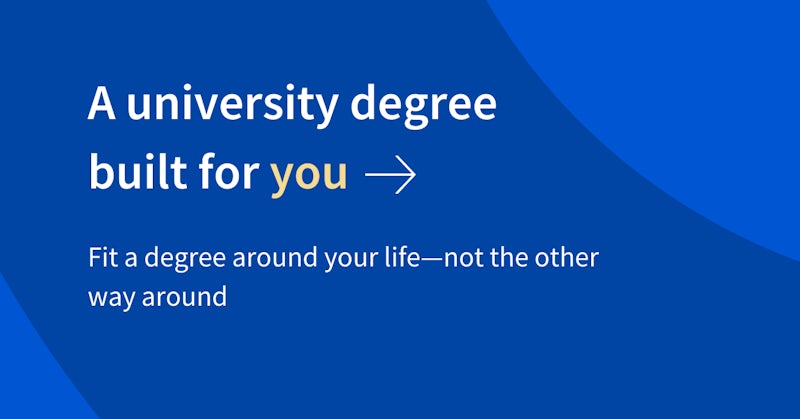Your Guide to the Master's in Computer Science
Are you considering advancing your knowledge of computer science? Read on to learn more about entry requirements, the skills you'll learn, and the careers you can pursue with this degree.
![[Featured image] A master's in computer science student sits at a desk in a public space working on her laptop computer.](https://d3njjcbhbojbot.cloudfront.net/api/utilities/v1/imageproxy/https://images.ctfassets.net/wp1lcwdav1p1/tkddebC0NcOPZBEfUrWfH/9e9706b4b581a5a6aeffd751cec2b438/iStock-1210322758.jpg?w=1500&h=680&q=60&fit=fill&f=faces&fm=jpg&fl=progressive&auto=format%2Ccompress&dpr=1&w=1000)
We interact with software, websites, and technology for many aspects of our daily lives—from commuting to cooking, shopping, and studying. Because of the prevalence of apps, games, and programs in modern society, jobs related to the coding and development of these products are plentiful. According to Statistics Canada’s job vacancies report, vacancies for software engineers and designers increased by 115 per cent between Q2 of 2021 and Q2 of 2022 [1], and vacancies for computer and information systems managers rose about 36 per cent over the same period [2].
You can find computer science jobs in nearly every industry, including health care, business, finance, entertainment, and government. Anyone interested in these careers might benefit from the expertise and enhanced job prospects of earning a master's in computer science.
Discover more about this field, what a master's in computer science is all about, and the types of jobs you can pursue once you've earned this degree.
What is computer science?
Computer science includes computing, software development, memory management, hardware, networking, and internet communications. Computer science has shifted from studying hardware to studying software and developing programs, writing code, and managing systems.
Computer science students use their knowledge to develop solutions to technical problems, create programs for clients, or design applications for work or entertainment.
What is covered in a computer science master's program?
With a Master of Science in computer science, you'll learn advanced concepts in computer science topics, such as software design, computer language theory, programming, and computer architecture.
If you're already in the computer science field, you might pursue this degree to advance in your profession or become a more competitive job candidate. If you're pivoting into computer science from another area, you could leverage your master's degree to familiarize yourself and build confidence in your new industry.
Three types of computer science master’s programs exist in Canada: the Master of Applied Computer Sciences (MACS), Master of Computer Science and Engineering (M.Eng), and the Master of Computer Science (MsC) [3]. While curriculum varies by program, key concepts you can expect to learn include:
Software development
Computer systems
Data structures
Algorithms and computation
Machine learning
Data visualization
Natural language processing
Numerical analysis
Cloud computing
Internet of Things (IoT)
Software, information, and network security
Software testing
Cryptography
Concentrations
You will also likely have the opportunity to specialize in an area of your choice, and your coursework will focus on this area. Possible concentrations include:
Cybersecurity
Big data
Data science
Artificial intelligence (AI)
Systems and software
Games
Robotics
Entry requirements for a computer science master's
Many computer science master's programs require a cumulative GPA of 3.0 or higher. Some programs may have a lower GPA requirement. Most programs also recommend a bachelor's degree in a related field. Job experience could be helpful, but it's not always necessary. You may need a letter of recommendation as well.
Many universities offer master's programs for computer science, so you're likely to find a program that suits you and an environment where you can learn and grow.
How long does a master's in computer science take to complete?
Most computer science master's degrees take 1.5 to 2 years, depending on your path and program. Part-time and online programs can give you more flexible options to earn your degree while you work or have other responsibilities. However, it may take longer to complete your degree, depending on your time commitment.
Do I need a master's in computer science to work as a computer scientist?
If you’re pursuing an entry-level position as a computer scientist, you may not need a master's degree. Usually, a bachelor's in computer science or a related field will suffice. However, if you're interested in more senior or leadership positions, those jobs may require a master's degree.
What can I do with a master's in computer science?
A master's in computer science can allow you to pursue various careers in technology. Some of these job titles might include:
Game designer
UX designer
Artificial intelligence specialist
Computer and information research scientist
Computer and information systems manager
Network architect
Computer systems analyst
Cybersecurity manager
Database administrator
Information manager
Information security analyst
Network and computer systems administrator
Software developer
Web developer
Nearly every company has positions that would suit someone with an MS in computer science. With the prevalence of big data and software, every industry has plenty of jobs that deal with topics you study while earning your computer science master's degree.
Get started
Experience for yourself whether a master's in computer science is right for you by taking an open degree course from a top university on Coursera. If you decide to apply and enroll, some courses could count as credit toward your degree.

Article sources
Statistics Canada. "Job vacancies, proportion of job vacancies and average offered hourly wage by selected characteristics, quarterly, unadjusted for seasonality, https://www150.statcan.gc.ca/t1/tbl1/en/tv.action?pid=1410032801&pickMembers%5B0%5D=1.1&pickMembers%5B1%5D=2.322&cubeTimeFrame.startMonth=04&cubeTimeFrame.startYear=2021&cubeTimeFrame.endMonth=04&cubeTimeFrame.endYear=2022&referencePeriods=20210401%2C20220401.” Accessed January 11, 2024.
Statistics Canada. "Job vacancies, proportion of job vacancies and average offered hourly wage by selected characteristics, quarterly, unadjusted for seasonality, https://www150.statcan.gc.ca/t1/tbl1/en/tv.action?pid=1410032801&pickMembers%5B0%5D=1.1&pickMembers%5B1%5D=2.211&cubeTimeFrame.startMonth=04&cubeTimeFrame.startYear=2021&cubeTimeFrame.endMonth=04&cubeTimeFrame.endYear=2022&referencePeriods=20210401%2C20220401." Accessed January 11, 2024.
Study Info Center. "Master of Computer Science in Canada, https://studyinfocentre.com/blog/canada/career/master-of-computer-science-in-canada." Accessed January 11, 2024.
Coursera Staff
Editorial Team
Coursera’s editorial team is comprised of highly experienced professional editors, writers, and fact...
This content has been made available for informational purposes only. Learners are advised to conduct additional research to ensure that courses and other credentials pursued meet their personal, professional, and financial goals.